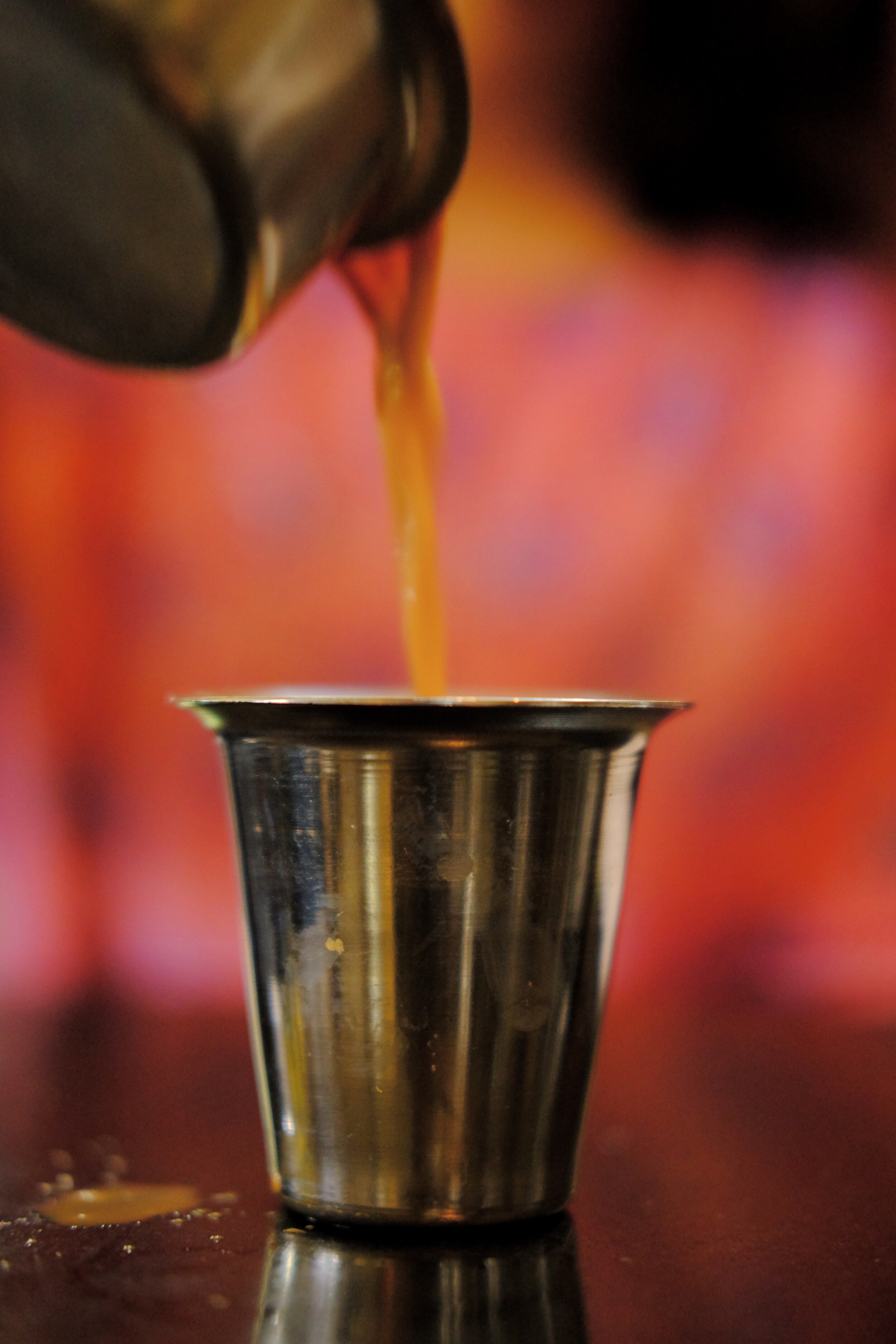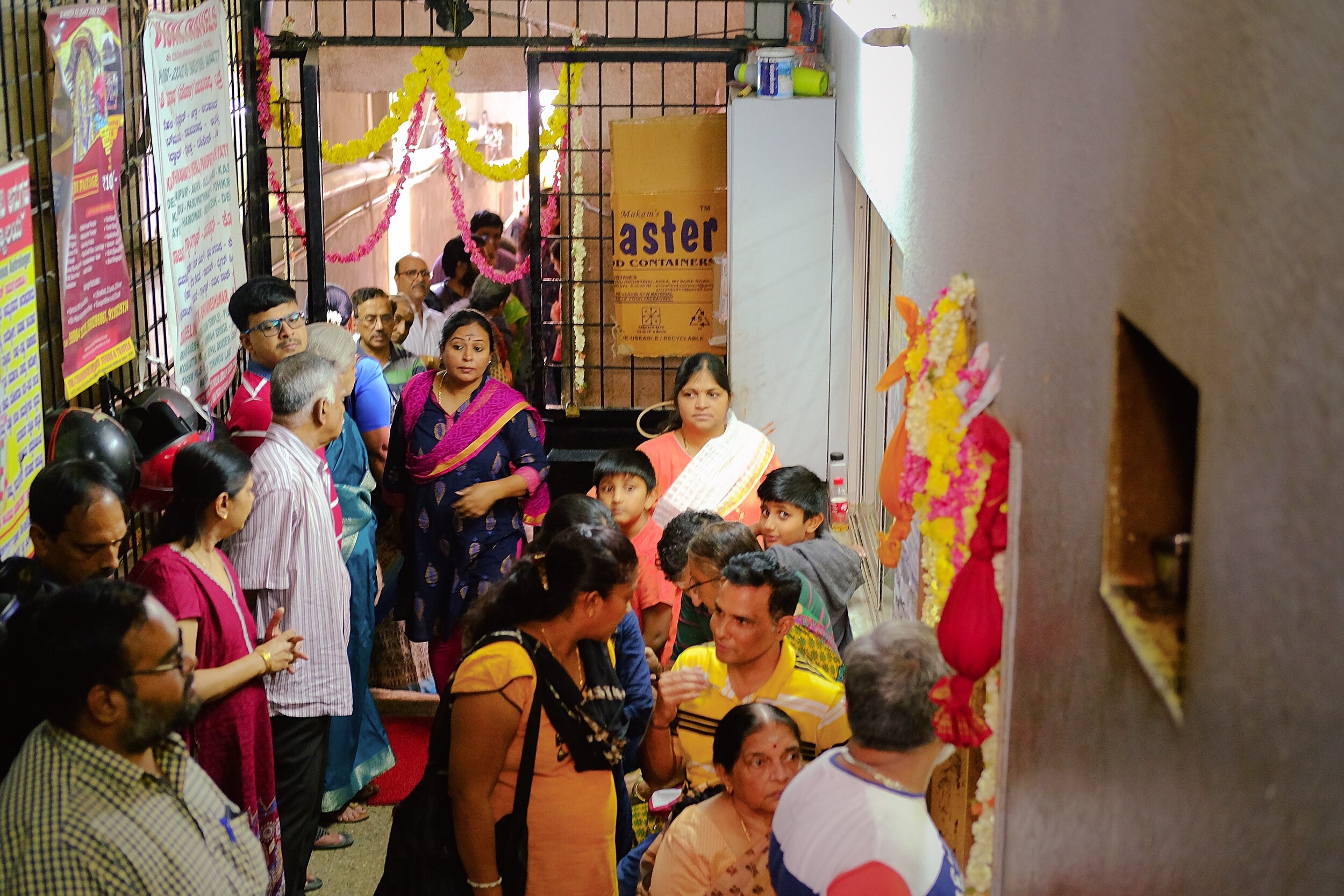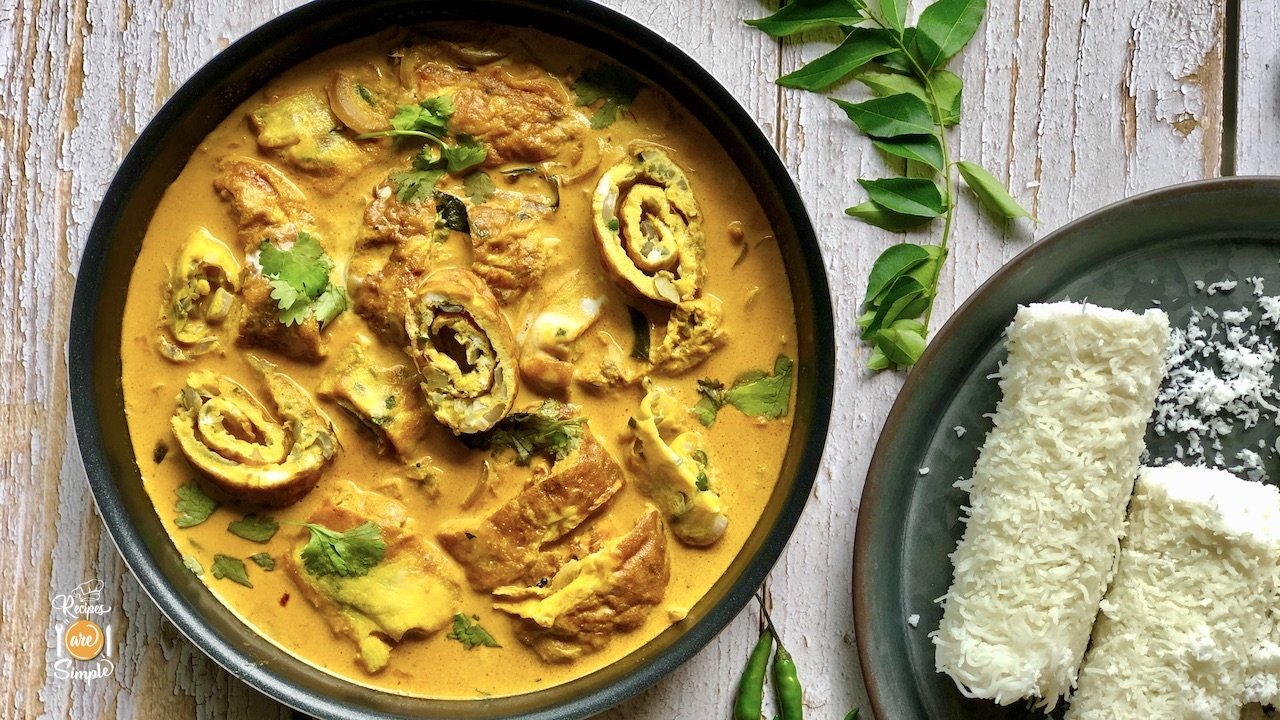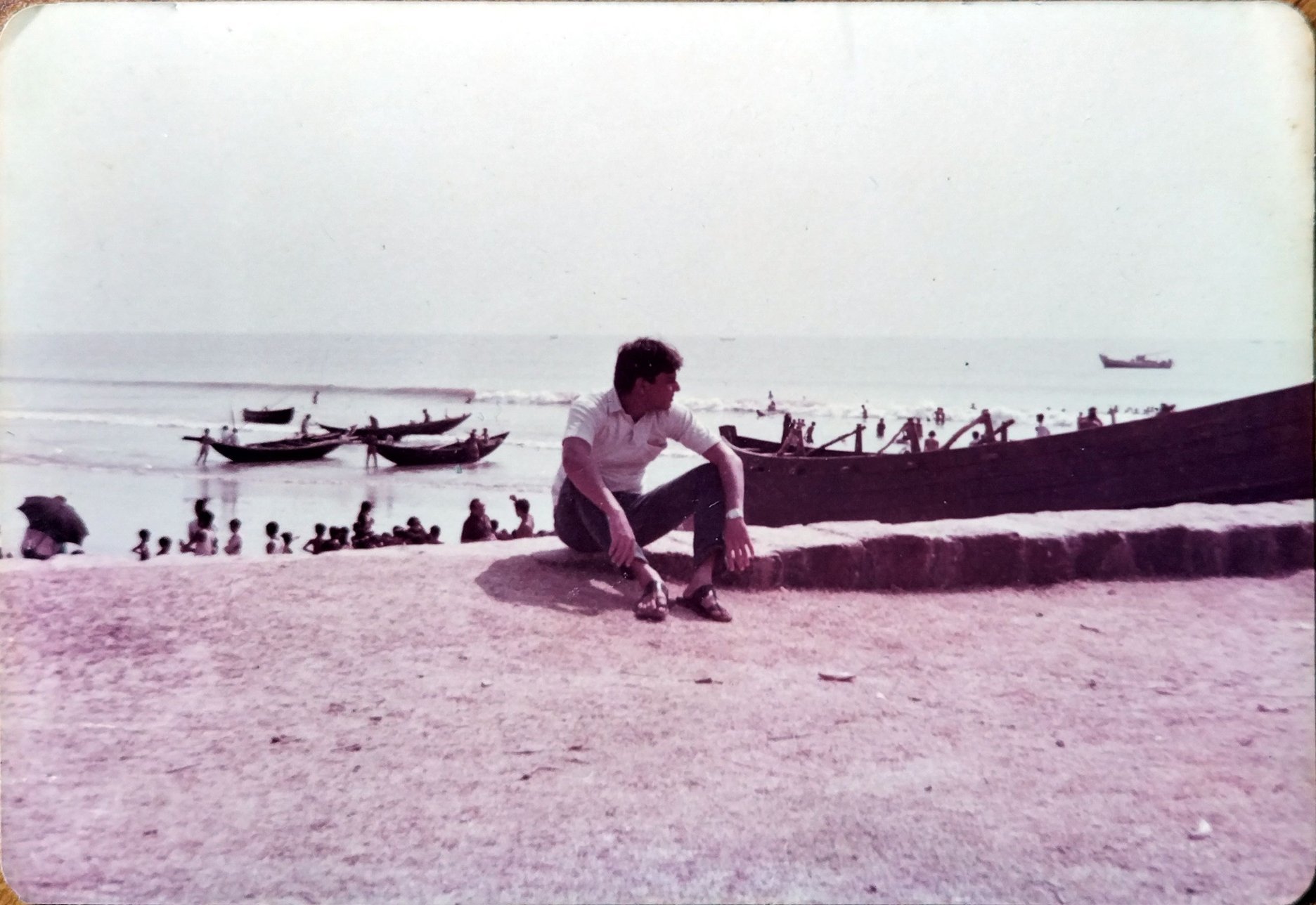The City that Breakfasts Together

Breakfast eateries in Bangalore are small, unassuming corner shops that hold some of the city's greatest culinary experiences. But as Bengaluru continues to grow as the tech hub of the country, what will the breakfast landscape look like in 15 years?
On any given Bangalore morning, you will find locals wedged in clusters around the city, hovering over a plate of dosa, fingers dancing around the edges of piping hot cups of filter kaapi. Breakfast establishments across the city boldly stake their territory, filling the air with the sweet, comforting smell of ghee. They are established in unexpected places; coexisting with households, offices, and upscale restaurants, forming the backbone of food culture in Bangalore.
The breakfast experience in Bangalore is centred around the ‘darshini’, which can be loosely defined as cheap, fast, efficient food service, serving mostly South Indian dishes. These establishments are rooted in precision, structure, and simplicity, brought to life by a melding of the senses. With closed eyes, one can hear it — the crackling of the oil on the pan, the sharp scraping of dosa by a worn spatula. The sweet aroma of filter coffee can turn the lights on, before even the first sip. As I devour jackfruit kesaribaath at Taaza Thindi (a famous spot in the heart of Jayanagar, known to have the best chutney in town), I share a bench with people of different ages, socioeconomic background, and nationality. The darshini is a crossroad of cultures — a momentary landing pad for people from all walks of life.
Veena Stores, Bangalore | Photo credit, Eli Cohen
Filter coffee | Photo credit, Eli Cohen
As an Indian-American planting roots here for a year, the city’s breakfast culture helped me feel connected in unexpected ways, providing vibrant snapshots of morning life in the city. This robust and rooted phenomenon made me curious about how the old mixes with the new. Bangalore, known for cool temperatures and snarling traffic, has become unrecognisable from what it was 15 years ago. It has seen rapid urbanisation and growth in number of jobs, largely due to a booming tech industry that has planted itself in the city. How has (and wil)l darshini food culture fare against these cultural shifts?
From a national standpoint, Bangalore’s breakfast culture is particularly unique. Breakfast in the city has a strong and storied history with a newly modern vibe — the restaurants range from venerable establishments, to smaller, modern eateries with a location-dependent customer base. Generally, South Indian fare has a much more elaborate breakfast scheme. Darshini menus across the city will feature some combination of dosa, kharabaath, idli, kesaribaath, etc. on their menu. If you rise with the sun in Delhi or Mumbai, you are likely to find your pick of chai and pakodas from street carts, but it is unlikely that you’ll experience the same culinary phenomenon that occurs in Bangalore. Here, you’re guaranteed to find a darshini within a few kilometres, regardless of which corner of the metropolis you find yourself in. The taste of the food may vary, but the concept in itself is consistent; there is little innovation, and the appeal of darshini culture lies in this fact alone. Few places breed home-like familiarity for people like a darshini; many families will gladly prioritise a darshini meal over a home-cooked one.
Bangaloreans are deeply committed to their local darshini; despite a large influx of immigrants and modernisation, allegiances and preferences don’t seem to be shifting. Most restaurant managers told me that they don’t only cater to the older Bangalorean demographic, as one would expect if darshini culture was truly phasing out. In fact, their customer base usually skews young. Locals swarm these establishments out of necessity of having their morning idli vada, with impeccable regularity. Customers like Rajesh and Savita, regulars at CTR, have a consistent, weekly rotation of darshinis they visit. Establishments that are distinctive to the city’s culture have an even more dedicated customer base. “I come here every week with my wife, before 9:30 am,” a customer at Vidyarthi Bhavan (an iconic eatery, and standing preservation of old Bangalore days) told me. “We have been eating their benne masala dosa for 20 years.”
Ganesh, Manager at CTR | Photo credit Eli Cohen
Customers waiting for a table outside CTR || Photo credit Eli Cohen
It is evident that these age-old institutions are keen on keeping their roots close, and owners seem to not be fazed by cultural shifts in the city. Other than the occasional facelift, and English-translated menu posting, little seems to have changed about eateries like Shri Sagar (CTR), a sixty-plus year-old institution and one of the most well-known in the city. These places work hard to maintain the integrity of their food — and in most cases opt for quality over scale of the brand. Ganesh, the current co-manager of CTR, told me they are finally thinking about expanding to a new location, only after over six decades of operation. Regulars enjoy the predictable nature of these spots — in operational efficiency and taste. Iyer Mess, for example, is a thali-style Tamilian eatery tucked away in the streets Malleshwaram, whose menu and interiors have remained the same since they opened in 1959. PM Venkatesh, the owner, told me that despite the development of the city, he feels no threat to his customer base, largely because loyalties to the restaurant run so deep. Bangalore is presented with more options for culinary engagement than ever before, as neighbourhoods like Indiranagar are overpopulated with western eateries, but it still seems that darshinis (especially distinctive ones, like Vidyarthi Bhavan and Veena Stores) are only winning acclaim.
“I love working here” Ganesh told me. “I’m here all the time, in the kitchen, helping flip dosas. I love taking in the people and the energy of this place — it is always such a pleasure.”
The city's more iconic darshinis often have long queues. However, the wait is not long as service turn around is quick | Photo credit Eli Cohen
In some ways, the cyclicality of darshini culture keeps Bangalore’s breakfast scene steady. Bangaloreans love darshinis for their food, consistency, and simplicity, so owners feel little need to innovate. It seems to me, that these breakfast eateries remain timeless, cementing the darshini experience as a cornerstone of not just food culture, but also as life in Bangalore. Even as Bangalore continues to house immigrants from all over the country and world, and Western notions of food and culture spread their roots, the darshinis remain firmly entrenched.
Aditi Ramesh is on a Fulbright student research fellowship in Bangalore, researching youth civic engagement. She lives in LA.
ALSO ON THE GOYA JOURNAL












